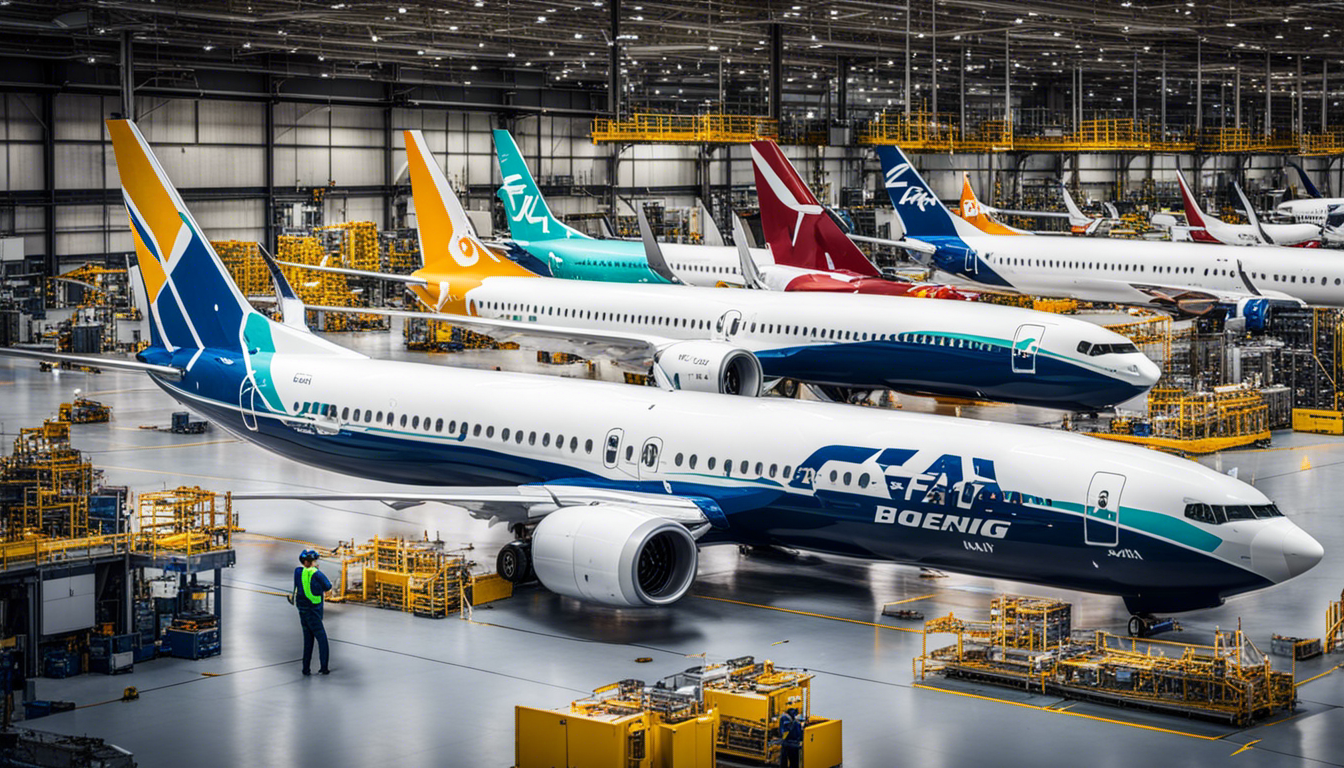
FAA to Increase Oversight of Boeing 737 Max 9 Production

Following a series of incidents involving the Boeing 737 Max 9, the Federal Aviation Administration (FAA) is intensifying its scrutiny of Boeing's production line. The agency is implementing a "direct inspection approach" at the manufacturer's facilities, with inspectors physically present to ensure the effectiveness of the quality control system.
Quality Control Inspection
In response to an alarming incident where a nearly new Boeing 737 Max 9 experienced a door plug blowout during an Alaska Airlines flight, the FAA promptly grounded the model and announced plans to conduct a comprehensive audit of Boeing's production line. This decision came after the door plug blowout caused significant damage to the aircraft, prompting concerns about passenger safety.
Boots on the Ground
FAA Administrator Mike Whitaker emphasized the deployment of inspectors at Boeing's production facilities, stating that the agency will maintain a physical presence until they are confident in the functionality of the manufacturer's quality control system. Whitaker further indicated a shift from an audit-focused approach to a more direct and hands-on inspection strategy.
Challenges and Inspections
Whitaker acknowledged the significant challenge posed by this heightened review process, citing the substantial manpower required to conduct the necessary inspections. The FAA has thus deployed a considerable number of inspectors to oversee the production process at Boeing's facilities.
Collaborative Efforts
The National Transportation Safety Board (NTSB) is actively involved in the investigation of the incident, with plans to review documentation related to the production, manufacturing, and maintenance of the Boeing 737 Max 9. The NTSB's engagement underscores the multidisciplinary approach being taken to address the situation effectively.
Airline Response and Grounding
In light of the ongoing inspections and safety concerns, airlines such as United and Alaska are proactively conducting preliminary checks on their Boeing 737 Max 9 fleets. Both airlines have reported findings of loose bolts on several of these aircraft, leading to further caution and grounding of the planes.
Uncertainty and Impact
FAA Administrator Whitaker expressed the challenge of predicting when the Boeing 737 Max 9 will return to service, emphasizing the thoroughness of the safety inspections as a priority. United Airlines, which has a significant number of Max 9 planes in its fleet, anticipates continued grounding through the end of January, leading to a projected financial impact on the airline's operations.
Boeing's Response
Boeing's commercial airplane unit CEO, Stan Deal, issued an apology for the disruptions caused by the delays in aircraft delivery and outlined a comprehensive plan to address the concerns. The company is planning safety sessions for its factory workers to evaluate and improve production processes.
Future Regulatory Actions
FAA Administrator Whitaker hinted at the possibility of considering permanent changes in how the agency oversees Boeing's production, suggesting a reevaluation of the certification and oversight processes. The FAA is open to exploring alternative approaches, including potential third-party involvement, to ensure the highest standards of safety and quality in Boeing's production line.
Share news















